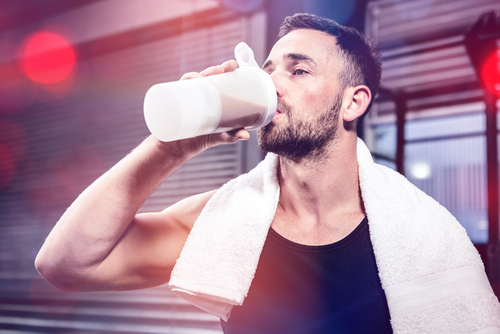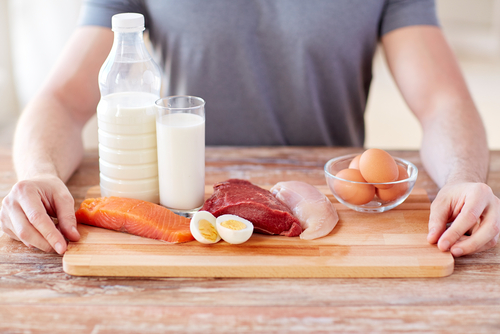
The Power of Enzymes for Athletes: What You Need to Know
There is perhaps no group of people on the planet who focus more on nutrition and supplementation than athletes. The physical demands of training for an athlete, whether they be a marathon runner, an Olympian or even a casual gym-goer, are rigorous. Every meal contributes (whether positively or negatively) to their success. One of the ways athletes can meet and even exceed their goals is by introducing enzymes into their diets. Here’s everything you need to know about enzymes for athletes.
The Nutritional Needs of the Athlete
In order to push harder, go further and perform better, athletes must consume more calories, and more food, than the average person. The ideal diet for any hard-hitting athlete starts with plenty of protein to help build muscle (anabolism) and prevent muscle breakdown (catabolism). To fuel the body and keep it moving, ample carbohydrates and fat are also required. Lots of lean meat, protein shakes and grains are great for bulking up or cutting down, but these foods have a tendency to wreak havoc on the digestive tract. Not only do athletes face tough digestive challenges, they also put their musculoskeletal systems through the wringer. After a particularly limit-pushing training session, some muscle fatigue and soreness can be expected, which can slow the training process. In addition, athletes who have been in the game for a prolonged period may experience pain or recurring problem areas triggered by overuse, injury or inflammation. Taking all of these unique factors into account, it’s clear that athletes need their own special considerations when formulating the right diet. Their supplementation routine should focus on:
- Supporting the body in the absorption of nutrients so that it can put all vitamins, minerals and proteins to work in helping build muscle
- Providing support for maintaining and increasing muscle strength and tone
- Assisting the body in post-workout recovery

Types of Enzymes for Athletes
With the above considerations in mind, athletes of all types should consider introducing a sports nutrition enzyme into their diet. These enzymes often come in pre-formulated blends that contain various potent enzymes for the whole body. Here are some examples:
- Protease — The powerful proteolytic enzyme protease is necessary for protein hydrolysis and generating amino acids. Proteolytic enzymes support healthy digestion and aid in muscle recovery, easing soreness.
- Amylase — This enzyme, found in saliva and pancreatic fluid, helps convert starch into glucose for energy. Excess glucose is stored in the form of the polysaccharide glycogen, which serves as a reserve or emergency energy source.
- Lipase — Just as amylase helps your body digest carbs, lipase aids in the digestion of fats, turning them to fatty acids and glycerol. It is naturally found in the pancreas.
- Lactase — As its name suggests, lactase is the enzyme produced by the body to help break down and digest lactose, a disaccharide sugar found in milk. It supports the body’s ability to digest dairy products commonly found in an athlete’s diet.
Choosing the Right Enzyme Blends
Since most people eat meals that contain a unique combination of protein, fat, carbohydrates, sugars and lactose, it doesn’t make sense to isolate these powerful digestive enzymes or take them separately. Instead, enzyme blends are used to provide complete support for digestion and the body’s ability to recover after strenuous physical activity.
- Pepzyme AG™ — This powerful blend of proteolytic enzymes is formulated to aid the body in converting proteins to smaller peptides and amino acids, which can promote building and maintaining muscles. Specifically, it helps athletes reach their goals by boosting the bioavailability of the protein they consume.
 Both of the aforementioned enzyme blends are effective throughout the pH range (3 to 9) of the digestive tract, ensuring maximum effectiveness. All products from Specialty Enzymes & Probiotics, including our unique athletic enzyme blends, are formulated with the highest quality ingredients. They all achieve the Good Manufacturing Practice (GMP) seal and are vegan, kosher, halal, gluten-free and GMO-free.
Both of the aforementioned enzyme blends are effective throughout the pH range (3 to 9) of the digestive tract, ensuring maximum effectiveness. All products from Specialty Enzymes & Probiotics, including our unique athletic enzyme blends, are formulated with the highest quality ingredients. They all achieve the Good Manufacturing Practice (GMP) seal and are vegan, kosher, halal, gluten-free and GMO-free.




